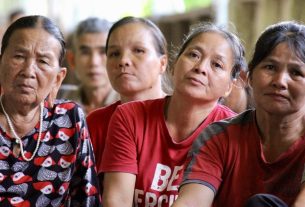(Washington, DC) – Guatemalan authorities should ensure a free and fair run-off election on August 20, 2023, the Washington Office on Latin America (WOLA) and Human Rights Watch said today. Amid attempts by political actors and several government institutions to interfere with the election, sustained international scrutiny remains crucial to safeguarding the right to vote of all Guatemalans and ensuring a peaceful transfer of power.
In the first round of presidential elections on June 25, Sandra Torres of the Unidad Nacional de la Esperanza (UNE), came in first with 15.7 percent of the vote, trailed by Bernardo Arévalo, an anti-corruption candidate and leader of the progressive movement Semilla, who secured 11.8 percent. The Supreme Electoral Tribunal announced on July 26 that Torres and Arevalo would compete in the August 20 run-off election. Since then, parties that lost and the Attorney General’s Office have taken steps that undermine the right to vote and harassed the Semilla Movement through legal maneuvers.
“Democracy is at stake in Guatemala,” said Ana María Méndez Dardón, WOLA’s director for Central America. “The country is on the brink of an unprecedented social and political crisis. Robust international oversight will be key to avert this crisis and help uphold the integrity of the people’s will.”
On June 30, several political parties brought a lawsuit before the Constitutional Court alleging that fraudulent voting had impacted the election. But local and international electoral observers reported no evidence of fraud or major irregularities that would call the results into question.
The Constitutional Court suspended on July 1 the announcement of election results and ordered a new process for challenging alleged vote irregularities. However, authorities found no such irregularities, and on July 10, the Supreme Court said that authorities had complied with the Constitutional Court’s ruling and approved the announcement of election results.
On July 12, following a request from the Attorney General’s Office, a judge suspended the legal registration of Semilla. The Attorney General’s Office alleged that the party had committed crimes in connection with the signatures gathered for its registration. However, on July 13, the Constitutional Court suspended the decision, ruling that the judge could not put the August 20 election on hold. The Attorney General’s Office nonetheless conducted a string of seemingly arbitrary raids, including on the offices of the Supreme Electoral Tribunal and Semilla’s headquarters.
The June 25 elections took place in a context of deterioration of the rule of law in Guatemala, where institutions charged with overseeing the voting have little independence or credibility. The authorities barred certain opposition candidates and undertook arbitrary criminal proceedings to create an uneven playing field.
Observation missions from the Organization of American States (OAS) and the European Union highlighted concerns about the “overjudicialization” of the election, the weakening of the rule of law, and attacks on freedom of expression, among other issues.
Guatemalan authorities should ensure an environment in which citizens can cast their votes freely and safely, respect the results, and ensure a peaceful and smooth transfer of power to the winner, WOLA and Human Rights Watch said.
On August 10, the Secretary General of the OAS Luis Almagro announced, after a visit to Guatemala, that the body’s electoral observation mission would remain in the country until the next government takes office. He also said that President Alejandro Giammattei had committed to handing over power to the winner on January 14, as established under Guatemala’s Constitution.
Electoral observers from the OAS and the EU should ensure continual attention to the situation in Guatemala until the peaceful transition of power is ensured, WOLA and Human Rights Watch said. Foreign governments should keep a watchful eye for potential interference or violence leading up to and during election day.
“We remain deeply concerned that the Attorney General’s Office will take arbitrary action against Semilla after the elections,” said Juan Pappier, acting deputy Americas director at Human Rights Watch. “Whatever the results on August 20, sustained international pressure is key to protecting the political rights of Guatemalans.”

